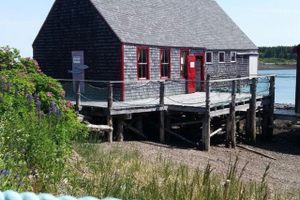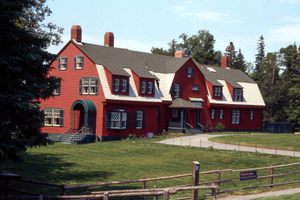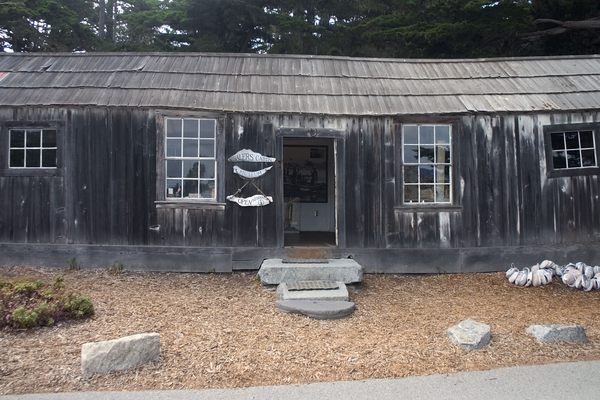About
Though the distance is less than a quarter mile, it'll still set you back a good, solid hour to make the trip over the chilly Quoddy Narrows from Lubec, Maine to Campobello Island, crossing not only the international border but right through a time zone. When it’s tea time in Maine, it’s cocktails at Campobello.
Only about two-thirds the size of Manhattan, the small island is part of the province of New Brunswick and has been an idyllic retreat for Americans and Canadians alike for well over a century. Starting in the 1880s and 90s, Campobello became a destination for wealthy families looking for a place to hang up their starched collars and tight corsets and just get their feet wet.
One family in particular took a shine to the place, returning summer after summer, teaching their little boy about whales, sailing, hiking and fishing. The boy turned out to be the 32nd president of the United States. Franklin Delano Roosevelt and Campobello have been intertwined ever since.
Little Franklin spent every summer of his childhood exploring the rocks at Snug Cove, canoeing along the beaches of Friars Bay, and spying the Quoddy Head Lighthouse across the Narrows. Sailing around the foggy Bay of Fundy, the Roosevelts shared the cool, choppy waters with seabirds, humpbacks, seals and harbour porpoises — marine life that is still a thriving part of the coastal ecosystem today.
In his youth, Roosevelt was as tough and rugged as his “Beloved Island,” bringing Eleanor there to spend the months of July, August and September with their five kids, knocking around their 34-room cottage when they weren’t clambering over the rocky shores. An avid golfer, yachtsman, and swimmer, it was here in 1921, when he was not yet even governor of New York, that the future president was struck down by polio.
It became harder and harder for Roosevelt to get to Campobello in his later years, unable to make the long trip on back roads and in rickety skiffs. This was before interstate highways and the addition of the causeway linking the island up with Maine. Today, visitors are no longer just the super wealthy, and it’s a whole lot easier to get there — but Campobello still feels like it must have felt to Eleanor and Franklin back in the day.
The Cottage is the centerpiece of Roosevelt Campobello International Park, the only international park of the United States. Jurisdiction and duties are equally shared by the U.S. and Canada, staffed by locals from both countries. There are extensive trails, beaches, gardens and a 2800 acre Nature Center — and in the spirit of true international unity, access to everything at the Park, including the Cottage, is free.
The close relationship between Maine and the island goes beyond just proximity. There is a shared history stretching back to the native Passamaquoddy nation, down through French explorers, British settlers, Irish rebels and resilient fishermen. There may be an hour between them, but both will make time for tea — or cocktails.
Related Tags
Know Before You Go
Cambobello Island is easily accessible by car across the short causeway from Lubec, Maine. Follow Washington St (Maine Rt. 189), and once over to the other side you'll be on BC Rt. 774. The Island Tourist Center will be on your right, and you'll reach the Roosevelt Campobello International Park in about a mile and a half.
During the summer season you can also take a couple of ferry rides to get there, from Eastport, Maine. The first ferry will take you to Deer Island, then board another ferry to get to Campobello. If you go this way you'll land at the dock in the village of Welshpool, just up North Road from International Park.
The Roosevelt Cottage and Visitors Center are open from the last Sunday in May through the 2nd week of October, and the grounds, Nature Center and trails are open year round. Admission to the Park, including the Cottage, is free.
And don't forget your passport - you'll need it to get into or out of Maine, passing through US Customs and Border Protection.
Published
June 28, 2016























































